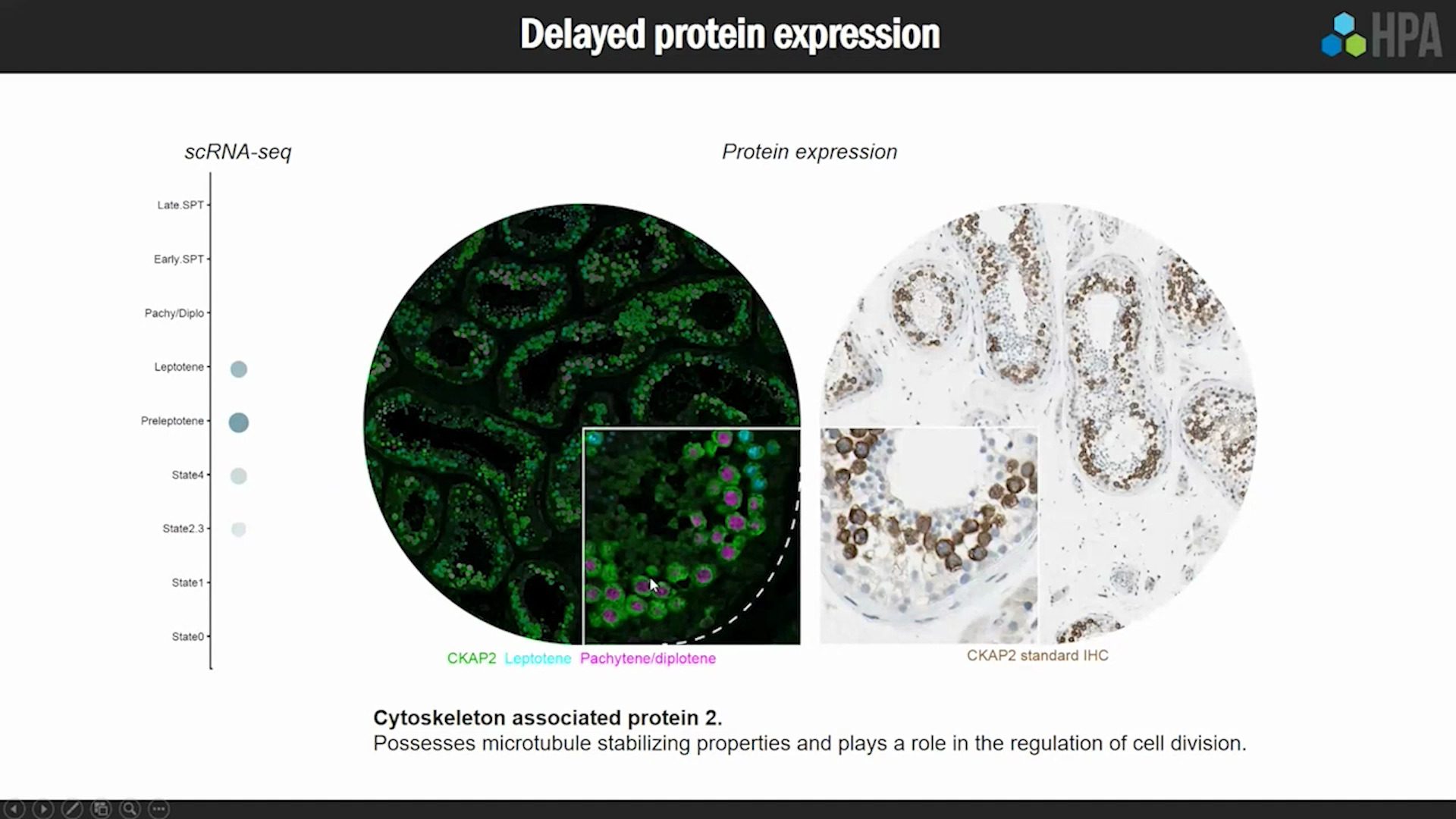Main Menu
We’ve rebranded some of our products, learn more ›
CODEX® is now PhenoCycler,
Phenoptics™ is now Phenolmager.
Developing a Spatio-Temporal Single-Cell Type Map of Adult Human Tissues
Webinar | Feb 21, 2023 | 9PM EST | 6PM PST
To comprehensively understand human health and applications of molecular and precision medicine, it is critical to characterize biological processes at the tissue and cellular level. During this webinar, Dr. Cecilia Lindskog, research group leader and associate professor from Uppsala University, describes how scRNA-seq, spatial proteomics, and machine learning algorithms can be used to generate high-resolution spatio-temporal maps of human tissues.
Using these approaches, distinct subpopulations of cells linked to pathways involved in normal and disease states were identified. Through a large-scale multiplex immunofluorescence pipeline, deep characterization of >500 proteins was performed to map the spatial localization. Combined analysis of mRNA and protein expression enabled the mapping of temporal and dynamic changes in gene expression and mRNAs that exhibited variable spatio-temporal expression patterns. Furthermore, putative functions were assigned to numerous uncharacterized proteins within a tissue-specific context.
Key learning objectives:
- Learn about the progress made towards a complete spatial map of the human proteome
- Understand how quantitative data can be linked with tissue morphology to create a spatio-temporal single-cell type map
- Discover examples of novel cell state-specific expression patterns validated with spatial biology techniques
- Explore how spatial biology has provided valuable insights into molecular function and mechanisms of disease pathways
Video

Speaker

Dr. Cecilia Lindskog
Uppsala University, Sweden
Biography
Dr. Lindskog is a research group leader and associate professor at the Department of Immunology, Genetics and Pathology, Cancer Precision Medicine Unit, Uppsala University, Sweden. Her main research focus is reproductive biology and pathology, to map temporal changes in protein expression throughout life-span, menstrual cycle and spermatogenesis, as well as explore processes related to infertility or cancer progression. Since 2006, Dr. Lindskog has also been affiliated with the Human Protein Atlas (HPA) project, the largest biological database for spatial proteomics. She received her PhD in Pathology at Uppsala University in 2013, and since 2014, she has been director of the tissue-based efforts of the HPA project, leading the team that generates the mRNA and protein expression data on human tissues.


